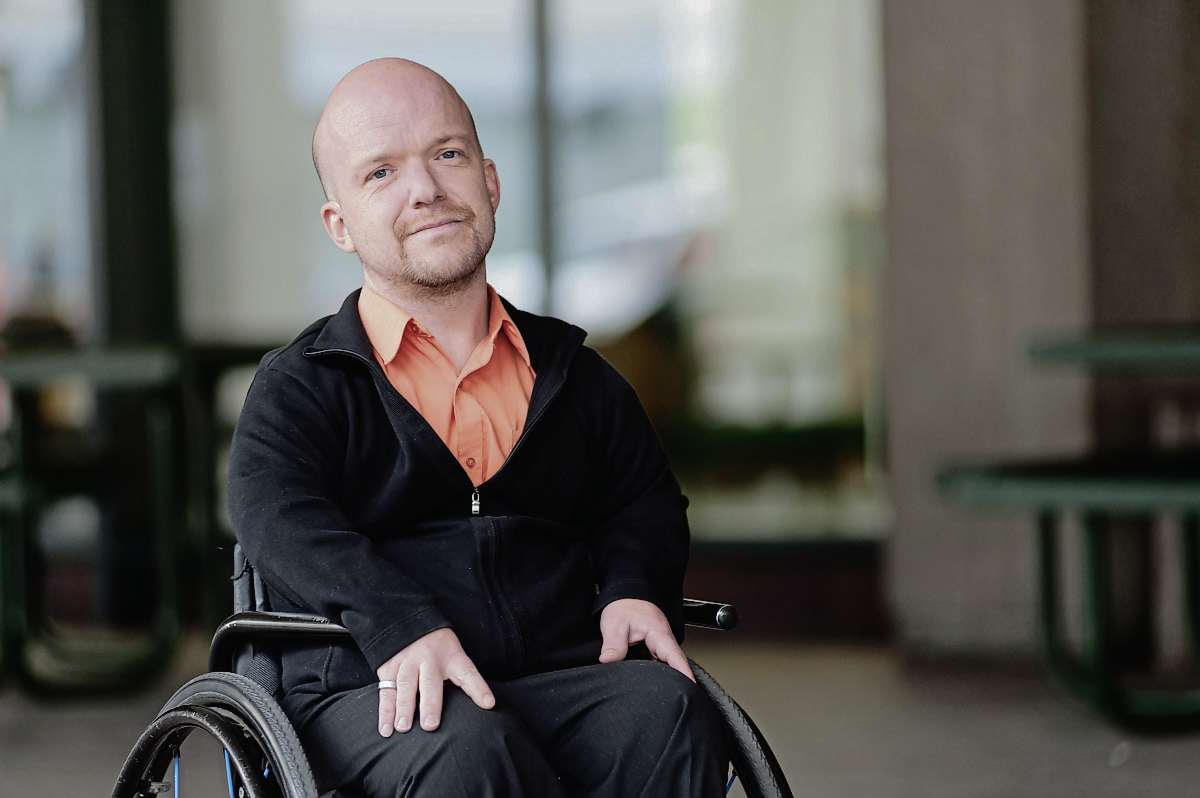A Winnipeg man who uses home care says people in his position need to advocate for themselves and for access to personal protective equipment amid the COVID-19 pandemic.

Kevin Black was born with achondroplasia and was paralyzed from the waist down later in life — he uses a manual wheelchair and needs a health care aide to help him with some tasks when he’s at home.
When the novel coronavirus first cropped up in Manitoba, he took steps to protect himself. He’s been isolating since March, and his regular home care worker has taken steps to stay safe, too.
But worse yet, he has a weakened immune system.
“If I get this, I’m not coming back from it… I’m going in the ground,” Black said in an interview.
The tasks Black needs help with require close contact — inches, not feet — between him and his home care worker.
When he received mixed messages about access to personal protective equipment to keep him and his aide safe, his concern increased.
He reached out through his Winnipeg Regional Health Authority case coordinator for surgical masks and eye protection on April 6, eventually receiving what he requested a week later — a box of 50 masks and glasses for his worker to wear.
“I’m told now I should be able to get this on a monthly basis,” Black said.

Get weekly health news
But he was frustrated — his case coordinator wasn’t able to give him a definite answer on when she could order him masks, saying in emails viewed by Global News that the directives around personal protective equipment were changing and she would let him know when she was able to get him the equipment.
Now that he has masks, he feels safer. But he wants other people who use home care to speak up for access to PPE.
“Advocate for yourself, ask for it, and fight for it and don’t give up,” Black said.
Meanwhile, the guidelines around home care visits have changed.
Coordinators have been asked to review service plans with clients and their families on a client-to-client basis, a WRHA spokesperson wrote in an email.
“The goal is to ensure significant health needs continue to be met while implementing back-up plans and/or virtual visits wherever possible,” the emailed statement reads further. That could include reducing the frequency of home visits.
Those changes are being put in place to reduce the risk of COVID-19 transmission for both staff and clients and to conserve the supply of PPE for workers, according to the spokesperson.
One of the province’s top public health officials notes Manitoba Health is considering PPE for home care clients.
“In our guidelines, we’re also looking at cloth masks and gloves potentially that clients can wear,” Manitoba’s chief nursing officer Lannette Siragusa said Thursday during the daily COVID-19 briefing.
“We do have guidelines for home care workers, we do want them to use PPE, as outlined, use it appropriately for their safety and the clients.”
“If the service is required, we want to make sure that service is delivered,” she said of home care, adding the province is encouraging workers to follow infection prevention and control principles. That includes frequent handwashing and reducing prolonged contact.
Questions about COVID-19? Here are some things you need to know:
Health officials caution against all international travel. Returning travellers are legally obligated to self-isolate for 14 days, beginning March 26, in case they develop symptoms and to prevent spreading the virus to others. Some provinces and territories have also implemented additional recommendations or enforcement measures to ensure those returning to the area self-isolate.
Symptoms can include fever, cough and difficulty breathing — very similar to a cold or flu. Some people can develop a more severe illness. People most at risk of this include older adults and people with severe chronic medical conditions like heart, lung or kidney disease. If you develop symptoms, contact public health authorities.
To prevent the virus from spreading, experts recommend frequent handwashing and coughing into your sleeve. They also recommend minimizing contact with others, staying home as much as possible and maintaining a distance of two metres from other people if you go out.
For full COVID-19 coverage from Global News, click here.









Comments